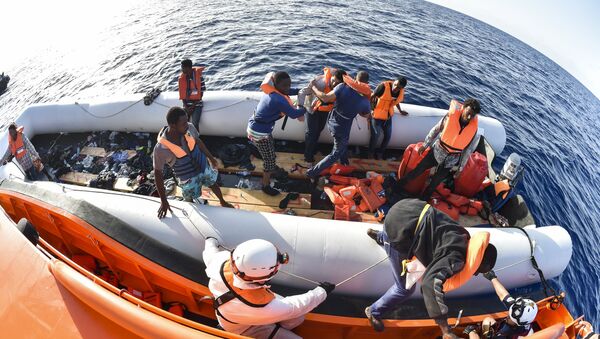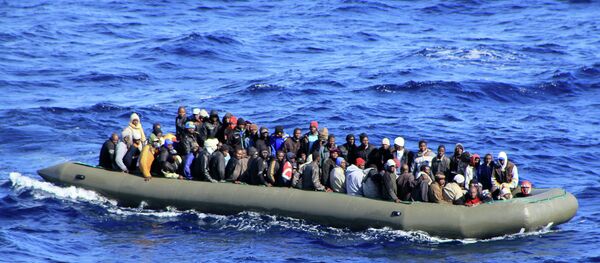Italy expects humanitarian groups that regularly help rescue migrants in the Mediterranean Sea to sign a recently drafted code of conduct. This agreement will oblige these groups to prove they have sufficient training and equipment to carry out rescue missions; refrain from transferring the people they save to other vessels and instead return to port and let migrants disembark; and allow judicial police officers on board, upon request, to investigates cases of human trafficking. Five aid groups, including the MSF, have refused to sign, while three have supported the code.
"They are trying to explain that because of the NGOs we have more migrants coming, which is completely ridiculous, because the migrants are passing through Libya. The law changed last year, on March 20, 2016, we had an increase in refugees going through Greece, and the European parliament decided to say ‘we have to decrease the number of refugees going through Greece’ and they closed Greece. And now the migrants are using another route to go to Europe," Torre said.
According to the MSF French Mission Chief, the code was introduced because the Italian government was worried that some of the rescue organizations may have been failing to respect the law.
Torre said the MSF objects to having to complete the journey back to the port instead of being able to transfer those rescued to other vessels and pick up others in need of help.
"This means that each time we have to do it, even if you have some people in the water you can’t save them because you have to first go with your boat, drop the refugees and then come back. It means if you have many, many refugees in the water, some of them will die, because the boat won’t be available," the French mission chief said.
Torre said the authorities were worried that when the migrants are transferred from one boat to another, the maritime rescue coordination center (MRCC) may fail to be notified about the new arrivals.
"Second point is that they want to oblige the NGOs to have policemen on the boats with arms, which is completely against the neutrality of MSF. In all our programs we refuse arms and we explain why. We tried to bargain saying if you want to have policemen, don’t bring arms. And they refused. And we can’t agree to this situation on our boats," Torre said.
According to the MSF French mission head, the Italian authorities need the help of the NGOs, but they are also looking to curb migration by pushing the migrants back to Libya.
"But now the situation with migration is not good in Europe. All the countries are closing their borders rather than having these migrants, they prefer to see the migrants outside Europe. That’s why they want to push them back to Libya, which is crazy, because Libya is an unsafe country… they want to push migrants back to their countries as much as possible, that’s why we are almost ready to bargain with Libya to keep the migrants in Libya, which is incredible, unsupportable," Torre said.
The head of the MSF French mission explained that those several organizations that refused to sign the code of conduct would continue their work cooperating with the MRCC and "see what happens."
Torre also pointed out that the organizations helping rescue refugees from the sea were not acting as "pull factor," contrary to accusations of providing refugees with an incentive to reach Europe.
Amnesty International and Human Rights Watch said in July that any code of conduct to be applied to rescue operations should serve to make them more effective and should be drafted in coordination with the involved groups.
In recent years, Europe has faced an enormous inflow of migrants and refugees, with hundreds of thousands of people fleeing poverty and insecurity in their home countries. In March 2016, Brussels reached an agreement with Ankara that allows migrants arriving in Greece to be sent back to Turkey. This deal has helped reduce the number of refugee arrivals to the European continent.
Another migratory route to Europe passes through Libya, which itself is struggling both economically and politically. In July, the European Commission proposed an action plan, which envisions, among other measures, additional funding to boost Libya's capabilities for border control.




